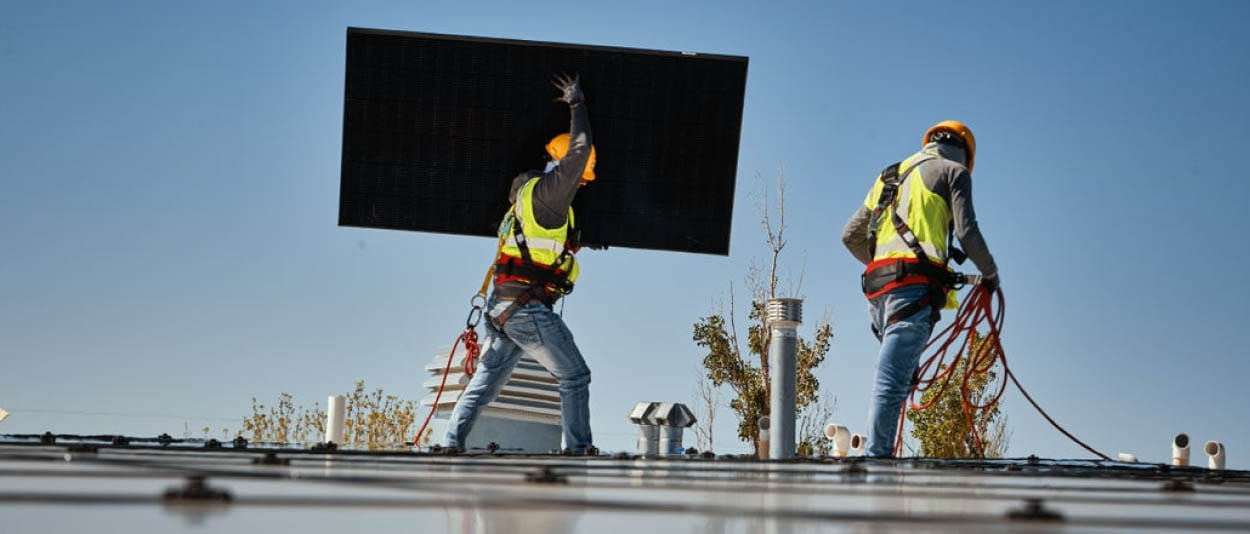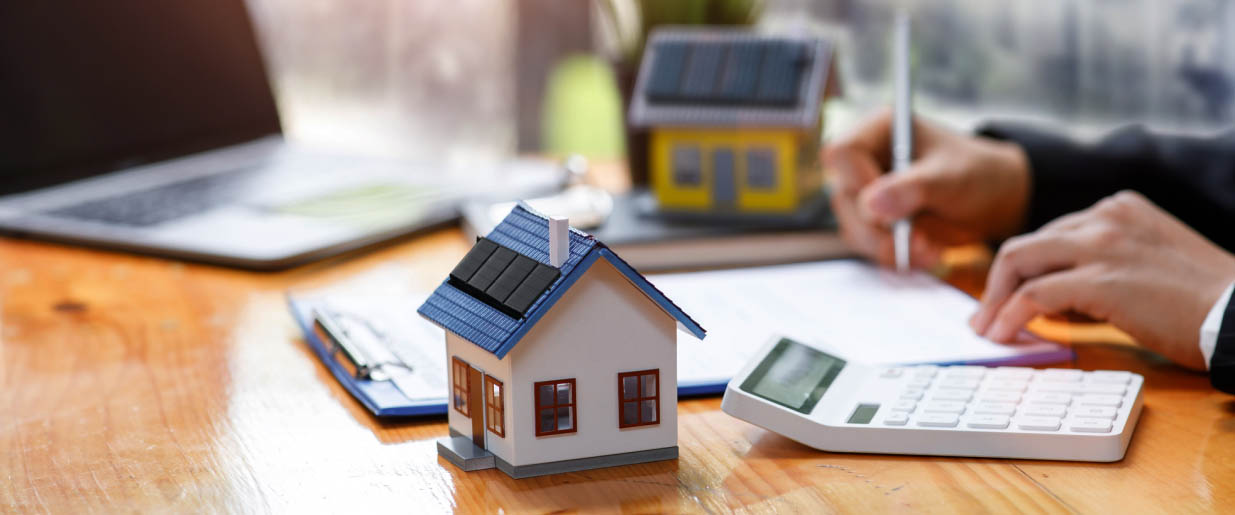

Does this sound familiar? Someone knocks on your door and when you open it up, they tell you how you can get free solar panels for your home.
Or maybe they phrase it a little differently. Maybe it’s a social media ad. But however it goes, you should know that there is no such thing as a free solar program.
Somehow, some way, you have to pay for solar. You can save enough money on your electricity bill to cover the cost of the solar system in the long run. And you may qualify for incentives or rebates that can reduce your overall cost considerably. But, like the “free lunch” adage, there’s no such thing as free solar panels.
Once you understand this, you can protect yourself from solar panel scams.
Are There Really Free Solar Panels?
Knowing that there is no such thing as “free solar panels,” it helps to realize what kind of financing options are common so you can understand how you’ll be paying for your home energy.
Both a lease and a power purchase agreement may allow you to go solar for $0 down, but you won’t own your solar panels. That means you won’t qualify to claim any tax credits, either.

Solar Lease
You can lease solar panels and components from a third-party solar provider (like Sunnova). Then, based on your system capacity (the maximum amount of solar power your system can produce), you’ll pay a predictable monthly payment throughout the lifetime of your lease.
Your relationship with your utility, including how you buy and sell electricity (such as net metering), is the same as if you owned the system.
The benefit of this offering is that you can go solar without spending a large amount of money, or sometimes even any money upfront, to finance the system. And when you choose Sunnova as your solar lease provider, we even provide a limited warranty for the full-term of the lease.
But none of this means you’ll get free solar, even if your panels can be installed for $0 down. Instead, it’s important to consider all aspects of the pricing in this model. A lease may lead to savings over what you’d pay an electric provider or utility, but it’s not free solar.

Power Purchase Agreements (PPA)
Choosing a PPA is opting for a trade-off. You agree to let a solar company install solar panels and equipment at your home, but you do not own them or even lease them. Instead, you pay only for the power your system produces. To make sure your system matches your needs, your system’s size would be based on your past electricity use.
Once a PPA agreement ends, a homeowner can have the system removed, purchase the system outright, or enter into a new PPA agreement. When you opt for a PPA with Sunnova, as with all systems from Sunnova, we’ll also provide a limited warranty up to the full 25-year term of your PPA.
A PPA may also lead to savings over what you’d pay an electric provider or local utility, but it’s still not free solar.
Solar Loan or Cash Purchase
When you choose a loan, Sunnova again provides a limited warranty up to the full 25-year term of your loan agreement.
System owners can take advantage of the federal tax credit plus any applicable state and local incentives. That includes the newly increased federal tax credit for solar, called the Investment Tax Credit (ITC), which is now up to 30%.
Homeowners can save more money over the long term by paying cash for their system, but it’s the trade-off for a hefty upfront payment if you’re paying cash. This makes a loan (which qualified customers may be able to secure for nothing down with low monthly payments from Sunnova) a great option for those who are unable to or would prefer to not pay large amounts of cash up front.
How to Avoid Solar Panel Scams

A common thread in these no-cost solar scams is that it’s not them giving you free solar; it’s the government that’s footing the bill.
Like all great lies, this has just a grain of truth to it. You may qualify for government incentives, although not everyone will. And, at this point in time, the government, whether federal, state, local, or all three, is not providing you with enough money to make going solar free.
Check out our Homeowner’s Guide to Solar Tax Credits
See what incentives you may qualify for.
What About Free Utility Solar Programs?
Another way that companies might say you can get solar panels for free is that your utility will pay for them. Again, a grain of truth. Some electric companies may allow you to sell the extra solar power you produce back to them/the electrical grid through an arrangement like net metering. But this is hardly a way to get “free solar.” Rather, it’s another way that solar may pay for itself over the long run.
The bottom line? Solar is a sound financial investment for many people, but it’s not a way to get rich quick.
As solar has grown in popularity, so have the number and sophistication of solar scams and half-truths.* Avoiding deals labeled as “free solar” is essential, but you should also be wary of promises about savings without enough information.
Will I Really Have No More Electricity Bill?
Get solar panels and cut all your ties with the electric company? That’s not quite how it works. Your solar panels may or may not offset all of the electricity you’re using, and you’ll still need electricity once the sun goes down if you don’t have battery backup.
Many factors determine your home’s total energy use, from the thickness of your windows to the efficiency of your home appliances.
Because of this, every home’s energy use is different. And that’s why it’s impossible for someone to tell you how much you could save with solar without seeing your electric bill.
The only way to truly know what you could save is by reviewing your historical electricity use (preferably over a 12-month span) or a sophisticated projection model for new homes, and then requesting a quote from a reputable solar installer. From there, you can get an accurate estimate for how much a solar system designed for your home could generate and how much money you could save.
Be Wary of High-Pressure Sales Methods
If someone is using high-pressure sales tactics, like insisting a deal or incentive won’t be around if you don’t sign a contract that day, then you should be able to take a deep breath and ask for more time and information before making a choice. While their deals and incentives may sound good, this won’t make up for choosing the wrong solar company.

Obtaining all the necessary information beforehand is especially important since solar has such a long lifespan. By choosing a solar company that has both a history and a future, like publicly traded Sunnova, you can be confident that we’ll be around for years to come.
Going solar is a long-term commitment. Think of going solar like buying a car. After the initial investment, you’ll have to consider upkeep and replacement parts as the years pass. With a solar service provider like Sunnova, homeowners don’t have to worry about maintenance or repairs. Our up to 25-year protection covers the full term of your solar or solar plus storage system.
Do Your Research, Ask Questions
As you research, look for installers who are willing to answer your questions and are upfront about potential costs and any needed roof repairs. Don’t be shy about talking to your friends and neighbors about their experience and never feel pressured to make a quick decision.

Here are a few other tips:
- Get quotes and ask questions when the company rep calls
- Look into what financing option makes the most sense for your situation
- Avoid companies that want to start without a contract in place
- Not having a contract in place is a red flag (and may not even be legal in your area)
Sunnova has been in business since 2012. As of early 2023, we’ve served more than 245,000 customers spanning 40 states and territories. If a small installer goes out of business, or a poorly run company goes bankrupt, it can leave customers without system protection.
As a publicly traded company, Sunnova follows a strict code of ethics and operates under ESG guidelines for global environmental, social and governance practices. As we continue to grow, our customers can trust that Sunnova will be around for the long run.



